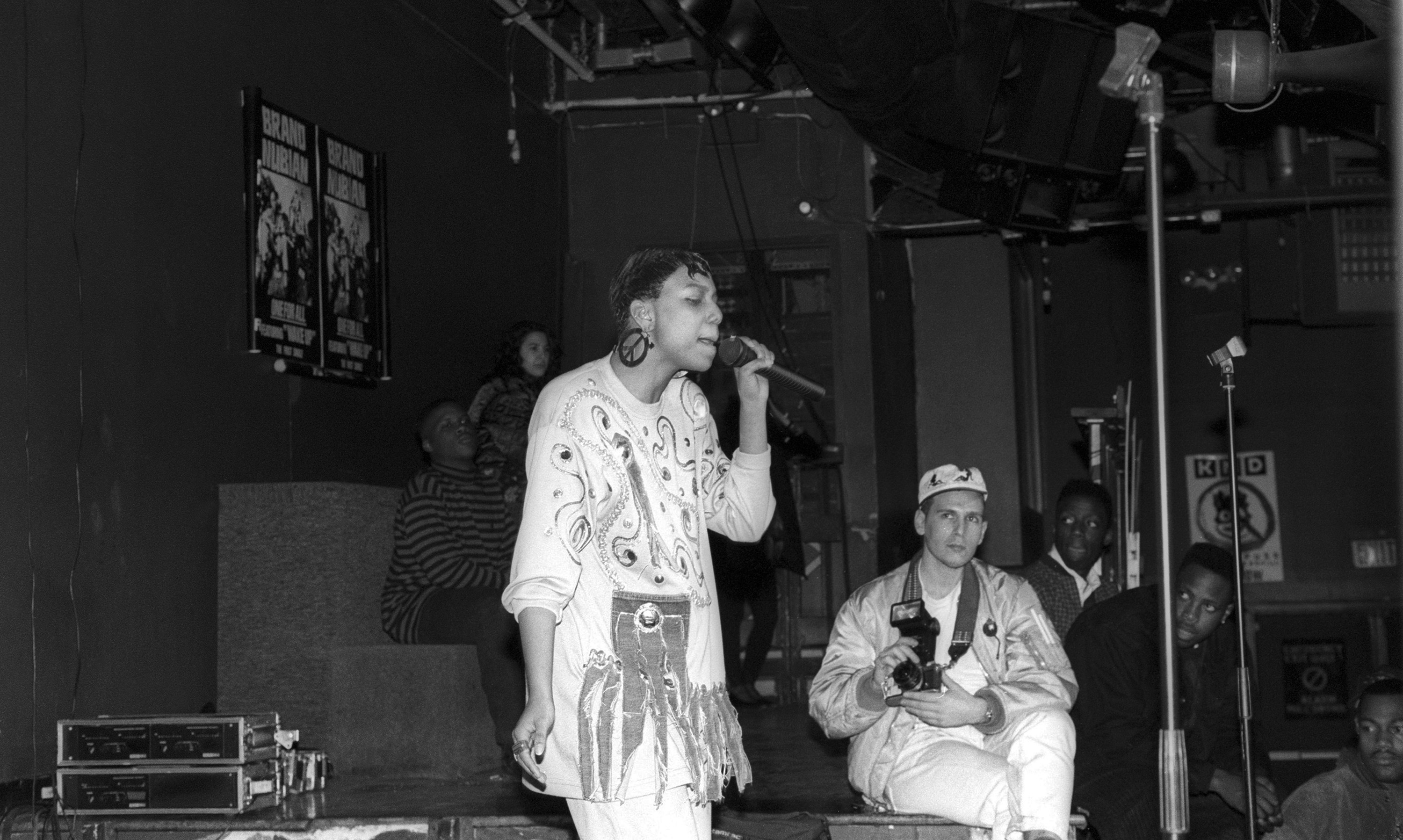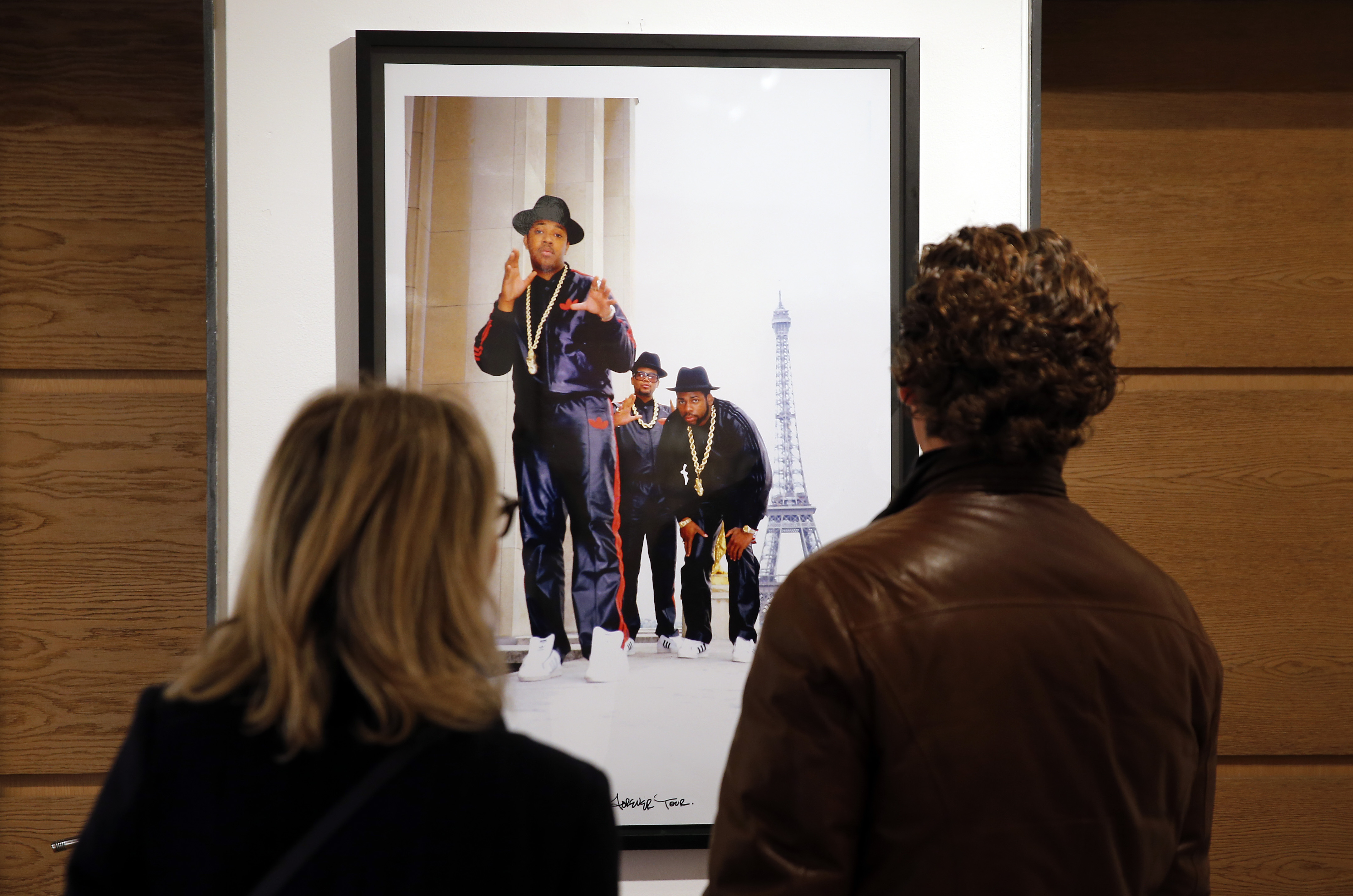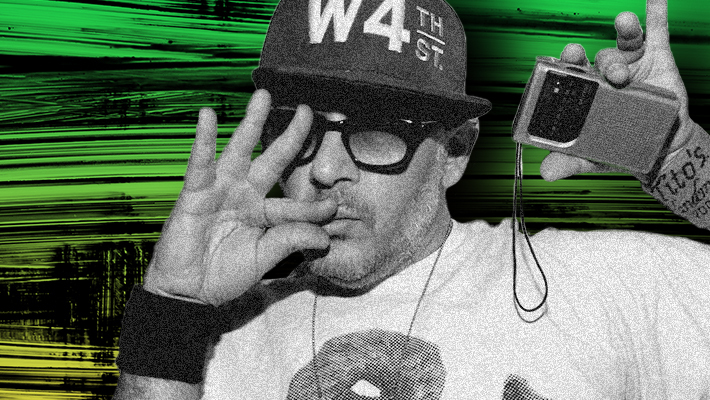Ricky Powell — famed photographer and iconoclast — died yesterday, at the age of 59. “The Rickster” made his name as a tour photographer for the Beastie Boys and Run DMC in the mid-80s. Through his lens, he captured the first Golden Age of NYC hip-hop and became famous in his own right, often called “The 4th Beastie Boy” after being shouted out in the lyrics of “Car Thief” on Paul’s Boutique.
To honor Ricky’s life, we asked photographer Mel D. Cole to share his memories and reflections with us. As adept with words as with images, Mel paints a picture of a man whose place in the culture and the vintage New York firmament is unquestionable and whose charisma was balanced out by an impeccable bullshit detector.
* * * *
I met Ricky Powell in 2007. By that point, people had been telling me that my photos reminded them of his work for at least five years — which was flattering because I knew so many of his classic images. Most people know the Run DMC/ Eiffel Tower shot, but there are lots of others.
The man photographed Warhol.
As rap photographers, we had a lot of mutual friends and, finally, we met at a party. The connection was instant — I admired him and, once he saw my work, the respect went both ways. He would introduce me to people as “the Black Ricky Powell,” which I found lovely.
This was a man who would call people cornballs right to their faces. One of those people who, if he doesn’t like you, he doesn’t like you. If he does like you, you can’t help but be flattered.

One of my favorite stories:
I had this “turkey burger” party at my friend’s place in Jersey City, and I invited Ricky. He’s one of those people where if you have him over it’s not gonna be boring. Something’s gonna happen. You always had to expect the unexpected.
My friend Shawn Morrissey was there, I was surprising him — because he was the biggest Ricky Powell fan. Had all his books, prints, everything. Ricky walks in and Shawn couldn’t speak, he was completely starstruck.
After a minute, Ricky starts getting weirded out and says, “Damnnnnn, you’re looking at me like I owe you money or something. Do I know you?” But out of that awkwardness, they became friends — hanging out and texting all the time.
He could be harsh like that, but he was also open to connection. His life was big but there was space in it, too.
Over the years, Ricky taught me a lot — directly and indirectly — and motivated me to learn, both from his work and from his mistakes. He got to a point where he had an amazing catalog that he lived off of, but he got stuck professionally for many years after his heyday. This pushed me to be known as more than “the guy who takes photos of The Roots.”
You couldn’t have told him to do more, though. His life was full. He might not have it all, but he’d had it all. And there wasn’t regret about how anything worked out, from what I could see.
How could there be? He did everything his exact style. No imitation. So when he got tired of what he’d been doing, he just moved on. His inspiration changed and he started shooting dogs and cats.
Sure, he got in his own way a lot. But who was gonna tell him to change? He liked his place in the world; he was “The Rickster.”
Homeboy Throw In The Towel… 😔 #RIpRickster.
— ?st (@questlove) February 1, 2021
I remember I took Ricky to a Roots show in 2009. He hadn’t seen Questlove in a while and you could just tell that he was having such a good time. He looked so happy — walking around with this little radio where he’d listen to jazz music.
You see what I mean about an original?
Ricky pulled it off so easily. Smoking his invisible jazz cigarettes. No one questioned him because he was 100% himself. He kept it more than a buck, always, and people felt that.
https://www.instagram.com/p/CKxVlYsFmtD/
I want to talk about being in his apartment, which you can see in the photo above, by Aviva Klein. We took that in 2008. It was like a museum in there and only a few people got to come in.
Inside, it was like… gross but in the most amazing way. You’d want to ask questions about his artifacts and his interests — basketball, the Knicks, Clyde Frazier, concert passes and posters of rappers, Keith Haring art, 50s-era pin-up girls next to fucking Basquiat.
This guy had stories about everyone. And he had no patience for fakes. “Cornball” was one of his favorite words to refer to people he did not fuck with.
There are people out there who look like other people, act like other people, talk like other people. That wasn’t Ricky. He wore glasses with one arm for years — just walking around and going to parties like that — and you couldn’t tell him to get them fixed.
It wasn’t his priority. He had no one to impress.
There’s this specific type of authenticity that certain New Yorkers from that era had. You couldn’t fake it or imitate it; social media and TV hadn’t destroyed regionality yet. Ricky was that era of New Yorker.
He was an icon; an institution.

When I got the call that Ricky died, I wasn’t surprised. It wasn’t a shock, it was just fucking sad.
I’ll miss him giving me that “Yeowwwww, let’s go smoke a doobie.” Which always felt good because if he liked you, he respected you. And if he didn’t like you… he had no filter for that.
He didn’t give a fuck. And yet, to know him was to care about him. Not many people can pull that balance off.
He’s the guy who we accepted for exactly who he is. Nobody could ever even think about changing Ricky Powell — it makes me smile just to think about someone trying. He was unchangeable to the very end.
And we all loved him for it.

